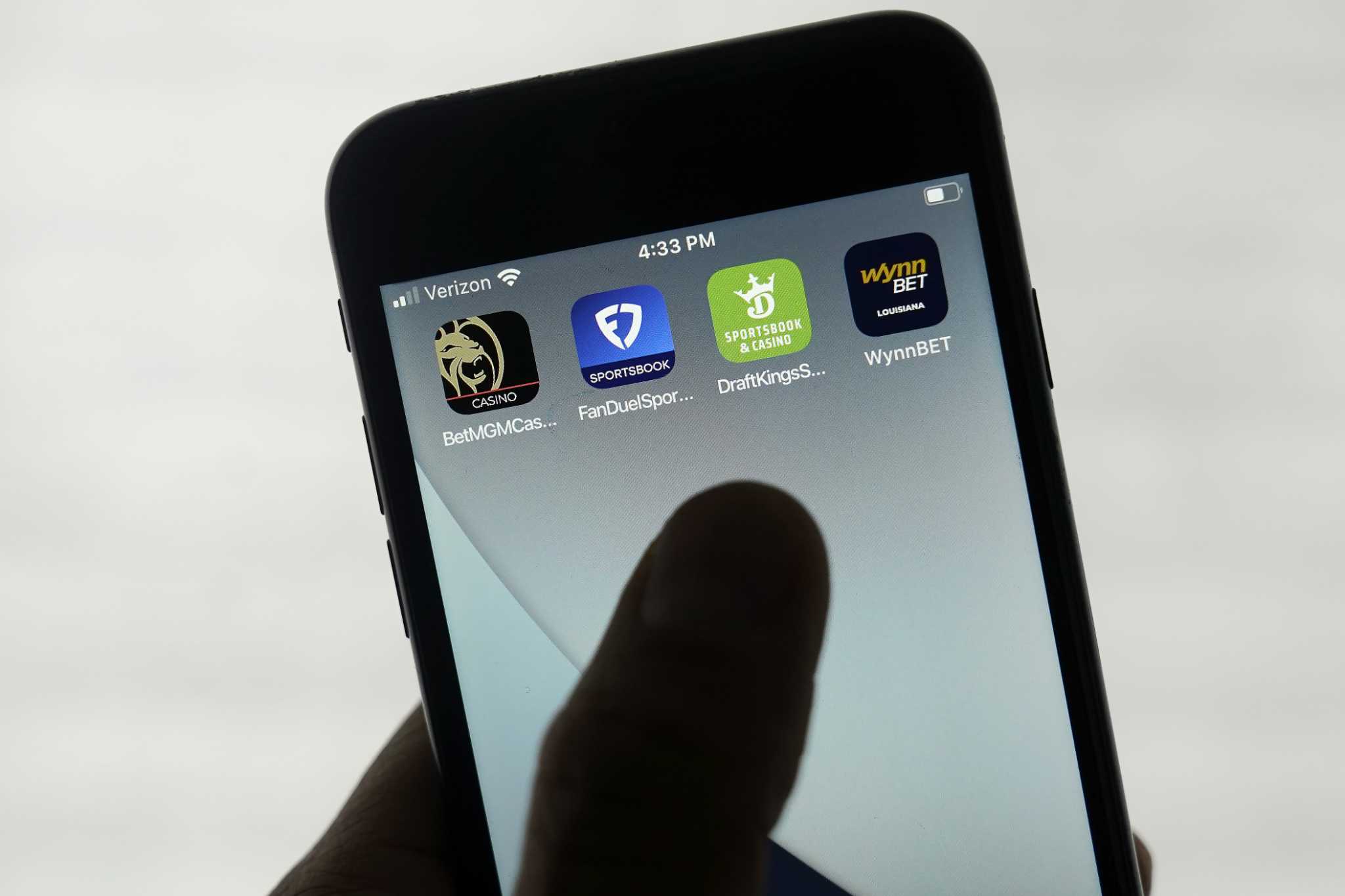
Critics and proponents of legislation to expand gambling in Texas pitted two key conservative tenets against one another as they testified before lawmakers in a House committee hearing Wednesday. Supporters stressed that the efforts would be an economic boon for the state, creating thousands of jobs and millions in tax revenue, while opponents appealed to lawmakers’ sense of family values, stressing the immorality of legalizing the potentially addictive gaming.
House Bill 1942, written by Rep. Jeff Leach, R-Plano, would permit regulated sports betting that is legal in 29 states. House Bill 2843, by Rep. John Kuempel, R-Seguin, would also permit casino gambling in Texas.
ALSO READ: Should Texas bet on online sports gambling? If so, will lawmakers tax it enough?
Leach said in a House State Affairs Committee hearing that illegal sports gambling is already rampant in Texas because of websites and apps residents can access over the internet. He said that a regulated model would help protect consumers.
“There are hundreds of our constituents, citizens of all ages, including minors, who right now, especially with March Madness, are placing unsafe, unsecure, illegal, criminal bets very easily,” Leach said.
He said bettors are putting their data and security at risk by placing bets with overseas platforms and have no recourse if they are scammed.
Leach stressed the bill would not permit betting on youth sports, and professional athletes and coaches would be prohibited from participating.
Proponents for the bill include the Texas Sports Betting Alliance, a group of professional sports franchises and betting platforms, including FanDuel and DraftKings. Representatives from the San Antonio Spurs, Dallas Cowboys, Houston Astros and PGA Tour were among those who testified in favor of the bill Wednesday.
Scott Ward of the Sports Betting Alliance said the group estimates that Texans bet more than $6 billion annually on sporting events.
ALSO READ: Taylor: Fantasy sports, online gambling a disturbing combination
Giles Kibbe, senior vice president for the Astros, said every major broadcaster and professional sports league has embraced sports betting, regardless of the wishes of Texas policymakers.
“This is a very big part of the sports and entertainment landscape in Texas … and will continue to increase with or without this legislation,” Kibbe said. He added that the bill would protect the integrity of sporting events.
Committee member Rep. John Smithee, R-Amarillo, cautioned that lawmakers must consider not only how professional teams and sports books may profit, but how the state could generate as much revenue as possible in taxes. The bill would impose a tax of “10 percent of the adjusted gross wagering revenue,” due monthly.
Eric Schippers, a lobbyist for gaming company Penn Entertainment, said a study by the American Gaming Association found that illegal sports betting is costing states about $700 million in in annual tax revenue.
“These findings imply illegal sports book operators are capturing nearly 40 percent of the U.S. sports betting market,” Schippers said.
Critics of the bill said it would allow gaming platforms to prey on vulnerable Texans who have gambling problems — which the state would profit from, in turn.
Research has shown gambling has many negative impacts, said Jonathan Covey, policy director for the social conservative group Texas Values.
“We know there’s consistent evidence of an association between gambling and problems like family violence,” Covey said. “Expansion of gambling of any form is addictive and harmful to families.”
Cindi Castilla of Texas Eagle Forum, a group that promotes traditional family values, said gambling profits off the losses of average people. She recounted how when visiting her parents in Missouri, where betting is permitted, “almost every” advertisement is a warning about gambling addiction or a wagering promotion.
“When someone gambles away their last dollar that was supposed to feed their family, that company that made the money is not going to come to their rescue,” Castilla said.
The debate about the bill to legalize casinos fell along similar lines of argument. Kuempel, the author, said his intentions are to promote high-class gaming and entertainment facilities that provide thousands of jobs and increase revenues to local governments via sales and hotel taxes.
“It is not the creation of a new Las Vegas Strip and slot machines in gas stations and convenience stores,” Kuempel said.
The committee left both bills pending rather than immediately taking a vote to advance to the full chamber. Neither bill has ever gotten a floor vote in the Texas House or Senate.
Historically, Texas has allowed only limited forms of gambling, including lottery, bingo, and horse and greyhound racing.
Efforts in the past to legalize sports betting have failed, but gaming interests have made a concerted push during this legislative session. The Las Vegas Sands casino and resort firm has registered 69 lobbyists, while the Sports Betting Alliance counts Republican former Gov. Rick Perry among its pitchmen.
Republican Gov. Greg Abbott and House Speaker Dade Phelan, R-Beaumont, have expressed interest in expanded gambling. Republican Lt. Gov. Dan Patrick, however, has been a staunch opponent of gambling bills in the past and has not signaled a change of heart.